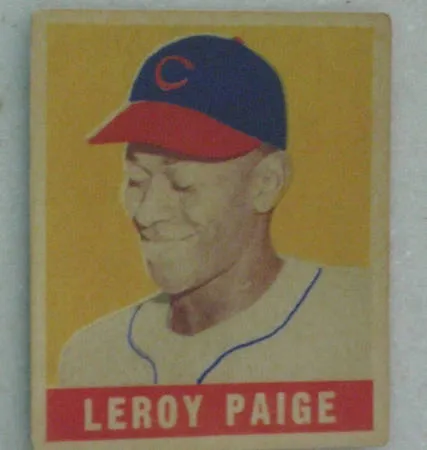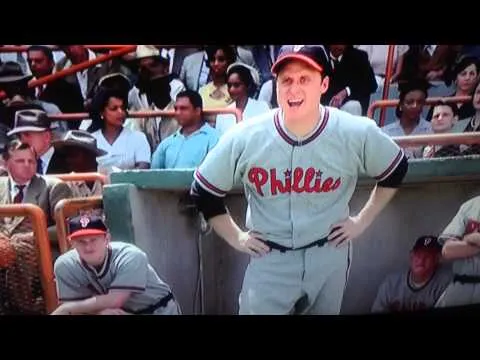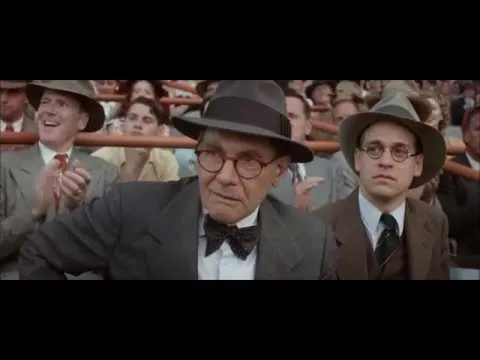 )
)There is a conspiracy that the Philadelphia Phillies, who were bankrupt due to plummeting attendance during the WWII years, and outright apathetic teams and a fanbase that really wanted nothing to do with the team at the time as the Philadelphia area truly had become a football powerhouse to be, as the state of Pennsylvania would show in the young men growing up and born during this time. There is pretty safe money that the best times around Pittsburgh and Philadelphia during this team were playing every day in the Negro Leagues. The staggering nugget of information during this time is that in baseball conspiracy circles, Bill Veeck, who would become a Hall of Famer in baseball as a visionary, contributor of the game as an owner/general manager of multiple great baseball franchises to come during this era.

The rumor, had it actually happened could have possibly crippled the integration as it was carried in baseball over gradual periods of time, little by little, in each individual city as it actually happened because had Veeck carried out this plan, this team may have competed for World Series titles for the next 15-20 seasons. During a prior integration period to the actual signing of Jackie Robinson by the Brooklyn Dodgers, there were insincere threats of integration, until the General Manager of the Brooklyn Dodgers Branch Rickey, with the blessing of the O'Malley ownership family took on the Herculean task of fully integrating the game, making it now, the most diversely participated professional sports league in the United States.

The folklore of the Negro Leagues is just as legendary as the concrete numbers of its white counterpart Major League during the same time periods of 1920-1950. The exploits of perhaps the most prolific professional pitcher in professional baseball history, Leroy "Satchel" Paige pitching professionally over the course of six decades professionally, from his late teens to his mid sixties, in his final year with the Kansas City Athletics (believed to be 65 years old at the time-his birth date was never officially confirmed but believed to be between 1900 and 1901) in a brief late season stint throwing two scoreless Major League innings. The exploits of Josh Gibson, who hit an estimated 900+ home runs over the same period of time when Major League Baseball's unquestioned dominant home run hitter Babe Ruth hit 714 homers while playing full time during the same period as Josh Gibson. Not to mention other marvels of the game that played in the Negro Leagues to mention a few available during that time, "Cool Papa" Bell (said to be the fastest base runner in baseball history), Judy Johnson, Martin DiHigo (Cuban citizen of African lineage who both pitched and hit whom Johnny Mize commented as the being best ballplayer he ever saw), and so many other greats, and yes of course the American cultural icon himself Jackie Roosevelt Robinson.

Had Veeck's sale gone through, and had he done this, had the Major League ownership not "allegedly" stopped this sale, sports history would've been turned on its head during this time. This team would have been the best team in the world, bar none. Having the greatest hitter of the time, the "Black Ted Williams," behind the plate Josh Gibson and Satchel Paige toeing the pitching mound ever four days, this team would be unstoppable. Dizzy Dean, among the top very few pitchers during his era said once on a barnstorming tour with Satchel Paige in the 1930's "If me Satch(el) pitched on the same team we would win the pennant in July and go fishing 'til the (World) Series." The sports writers, along with fans of today can only salivate in having the two most quotable pitchers of all time on the same club for a summer. There are many historians of baseball that claim the best team of the 1930's was indeed the Homestead Grays that Hall of Famers Josh Gibson, Satchel Paige and Buck O'Neill played for that was said to surely rival the talents of the powerhouse dynasty New York Yankees led by the great Joe DiMaggio.

So why did this not happen. Well, the Philadelphia franchise was sold to what turned out to be a shadowy figure of the time a man by the name of Bill Cox. Cox wound up being the "top" bidder for the Phillies, and due to their extreme financial shortcomings and debt carried over sold for a pittance of $50,000. So what happened with the Cox ownership reign in Philadelphia? He was ousted from the game within five years. Betting on his team, ironically enough to win, while they were perennial doormats of the National League losing in the upwards of 90-100 games a year (of 154 total at the time) which in all circles made them the most pathetic franchise during the time. It's rumored that Veeck's bid to buy the team was substantially more than Cox's $50k offer, but it was leaked to high ranking officials to the commissioner's office of Veeck's plans to integrate baseball, so he was denied. Up until 1947 (Jackie Robinson signing) the conspiracy to allow any integration of any non-white player held up in Major League Baseball, putting an immeasurable damper on the history of the game and what it could have ended up as a whole. But also a great damper to the city and people of Philadelphia, as you will notice the very ugly scene that is portrayed in the movie "42" among then Philadelphia manager Ben Chapman and Robinson.

[Sources: "42" Legendary Pictures produced by Warner Bros. 2013]

